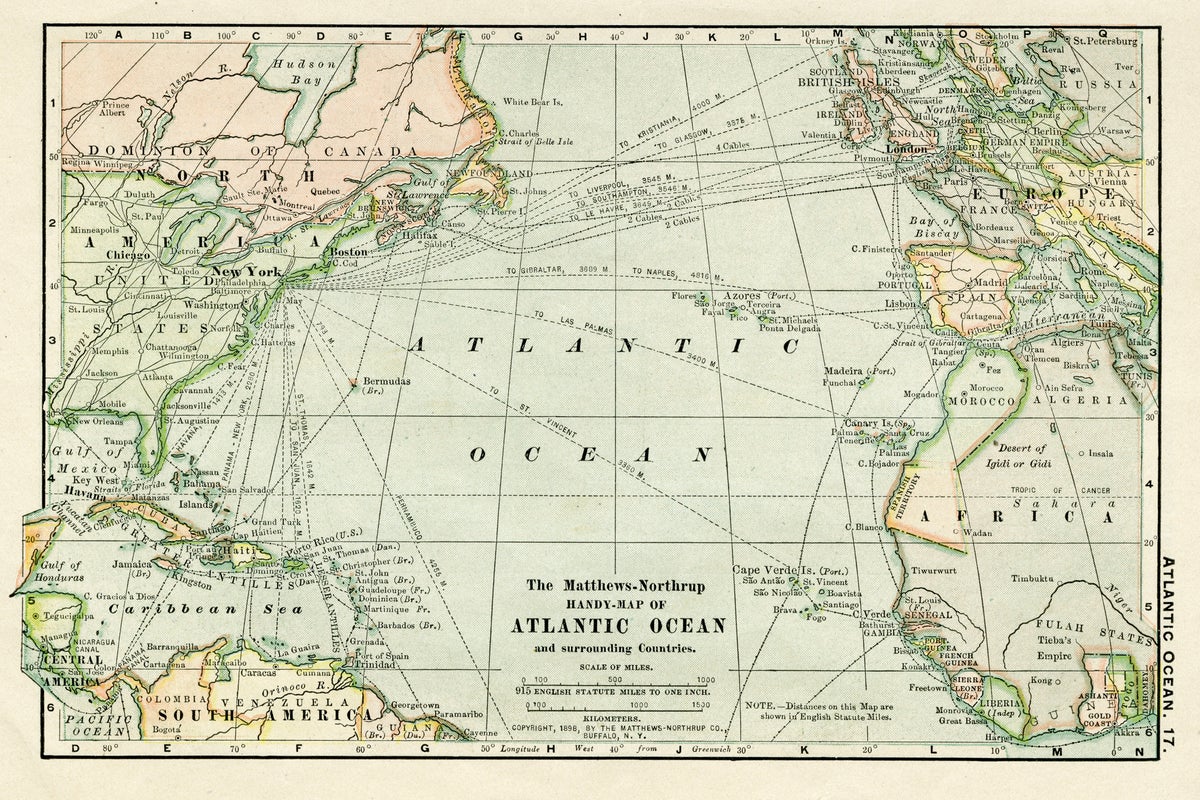It was George Bernard Shaw, by most accounts, who said that “England and America are two countries separated by a common language”. That’s not all they are separated by, as we explained in a headline on an opinion piece about a meeting of European leaders. “The ‘Coalition of the Willing’ summit in Paris proved that the US and Europe are an ocean apart,” it read, causing some of us to wonder whether this geographical detail had previously been in doubt.
To be fair, I often forget where things are, but I think North America has been in the same place for quite a long time, as have we on this side of the Atlantic, so there is no excuse.
It is fine to use figures of speech, and our writing would be duller without them, but this was not a very good one in the circumstances because it was also an unarguable fact. Still, if anyone was less than clear about how far away the United States is from our own fair continent – in physical or metaphorical terms – they probably have a solid grasp of that now.
There was more maritime banter in an article we ran about the apparent similarities between the Queen of Denmark and the Princess of Wales. “Nine years in age and a great swathe of ocean once separated Mary Donaldson and Kate Middleton,” we wrote, “but these two women … now stand at the forefront of regal power in Europe.”
I have never been very good at maths, but my understanding is that age gaps tend to remain constant. And once again, unless England has recently upped anchor and made its way quietly northeast, there is still a good deal of sea between London and Copenhagen. Perhaps we should try to steer clear of watery metaphors until we have learnt to navigate them a bit better.
When the levy breaks: We got in a muddle with another headline, this time on a report about the introduction of a new tax on cars entering the US. “Trump implements 25% tariffs on vehicle imports,” we said, when all he had actually done was announce his intention to do so. We could have said “announces”, or “threatens”, but to implement means to put in place, or fulfil a commitment to.
The tariffs in question did not come into effect until several days after our report was published. In fact, we got it right later on in the article, when we said: “The OBR earlier warned tariffs threatened by Trump could eliminate all of Ms Reeves’s margin of error in her Budget if they are implemented.”
A sense of quilt: We invented a novel taboo in a comment piece about The White Lotus last week, when we attempted to describe an act of incest between two siblings: “But then Saxon wakes up with the mother of all hangovers, and another scene from the night before floats into view: a hand pleasuring him beneath a bedsheet that belongs not to the woman he planned to seduce, but to his little brother.”
It was the slightest of syntactical slips that caused us to imply that the problem was not who owned the hand so much as who owned the bedclothes, and that the unfortunate parties had chosen, as it were, the wrong linen to sin in. It wouldn’t have taken much to resolve the ambiguity – it’s annoying to have to rework a sentence, but, for the sake of clarity, it is often worthwhile.
Start to finish: In a list of the best opening scenes in movies, we described the beginning of Blade Runner (1982), commenting that “few sci-fi films have ever come close to replicating an introduction quite like this”. That’s all very well, but to replicate means to produce something “quite like this”, so we were repeating ourselves. It was a different bit that attracted a reader’s attention, though: where we said of The Thing (also 1982) that “the paranoia and isolation that envelops the film is evident from the get-go”.
“What is wrong with ‘start’ instead of a ghastly Americanism?” wrote our critic. “Probably even worse than ‘gotten’.” Well, they were half-right. The term “get-go” is an old US colloquialism that seems to have come into use in the 1960s and assimilated itself into British English at some point after that. But “gotten” is a whole other ball game (or alien life-form, if you like). As we have previously established in this column, it’s not quite that simple.
Personally, I have no objection to “get-go” (I realise I may be alone in this), but I’m not fond of “gotten”, regardless of its Middle English origins; the extra syllable feels cumbersome, and I don’t use it in my own writing unless I am quoting someone else – though a colleague once added it to something of mine when I wasn’t looking, which caused a commotion among my regular readers [Both of them? – Ed].
In any case, American does not equal bad, and we have worse things to worry about than a bit of shared vernacular across the aforementioned ocean. Language is one area in which our continents are rather nicely incontinent, and I think that’s – to borrow a phrase – just fine.

.jpg?trim=141,0,142,0&width=1200&height=800&crop=1200:800)





